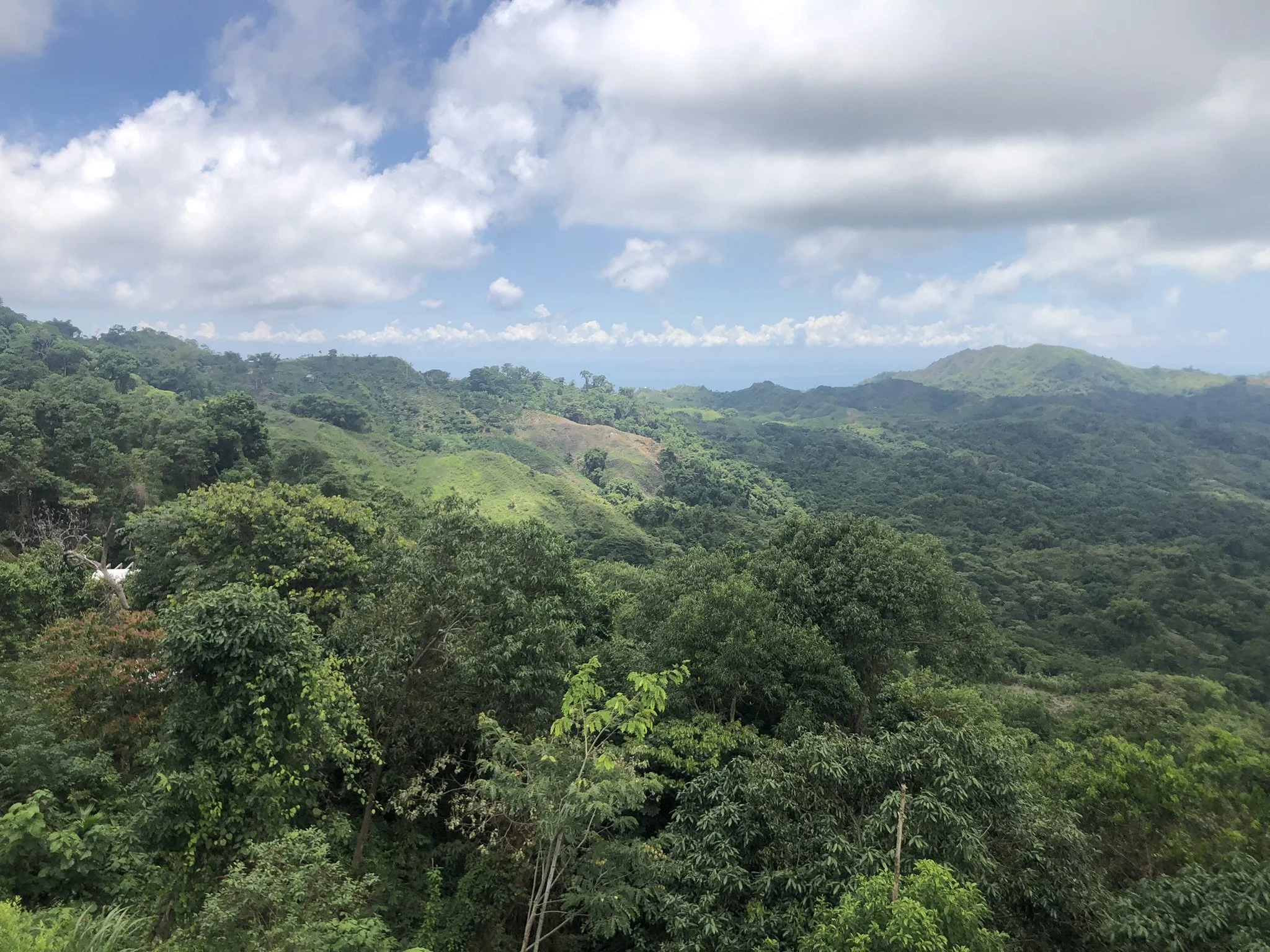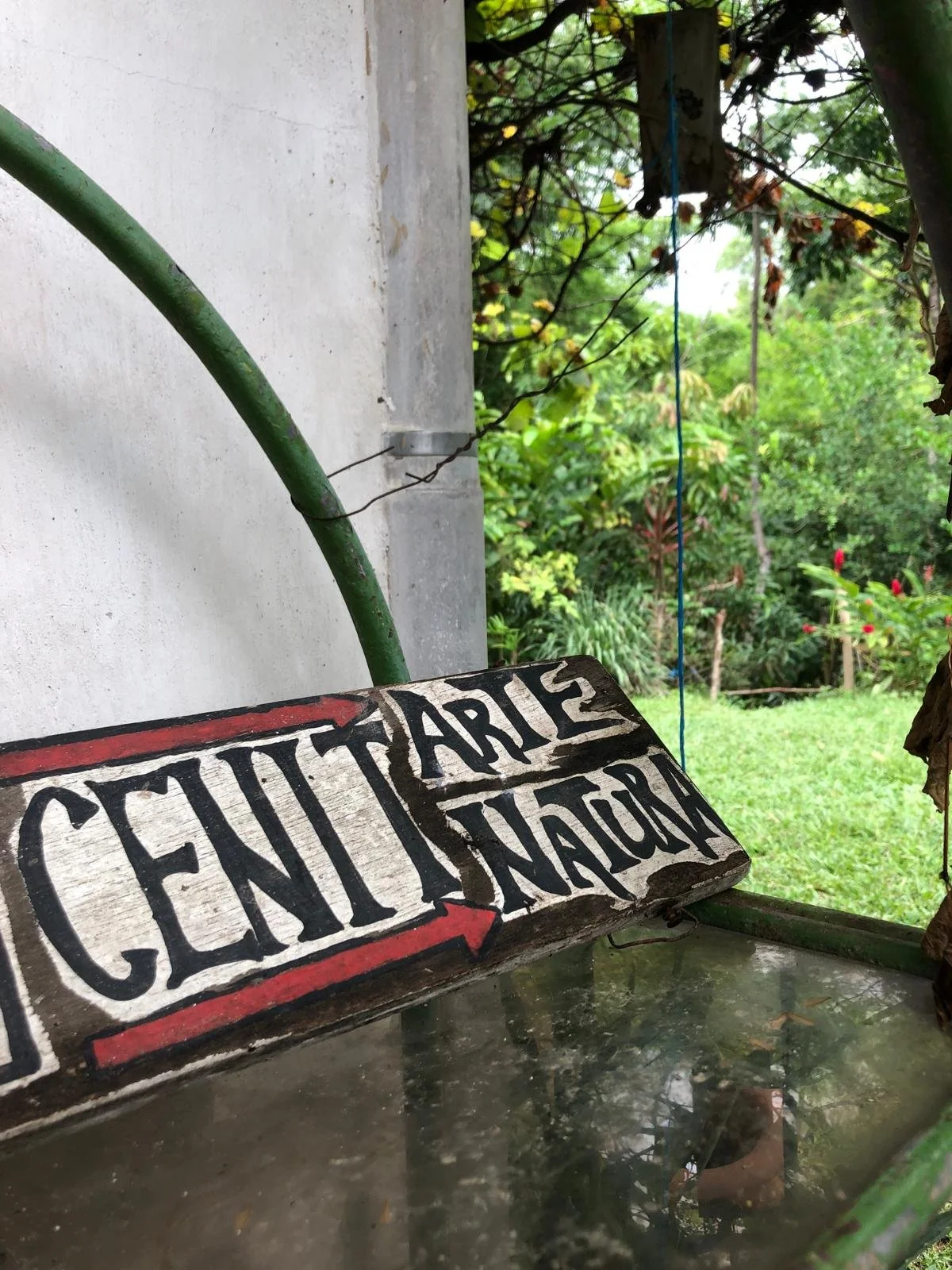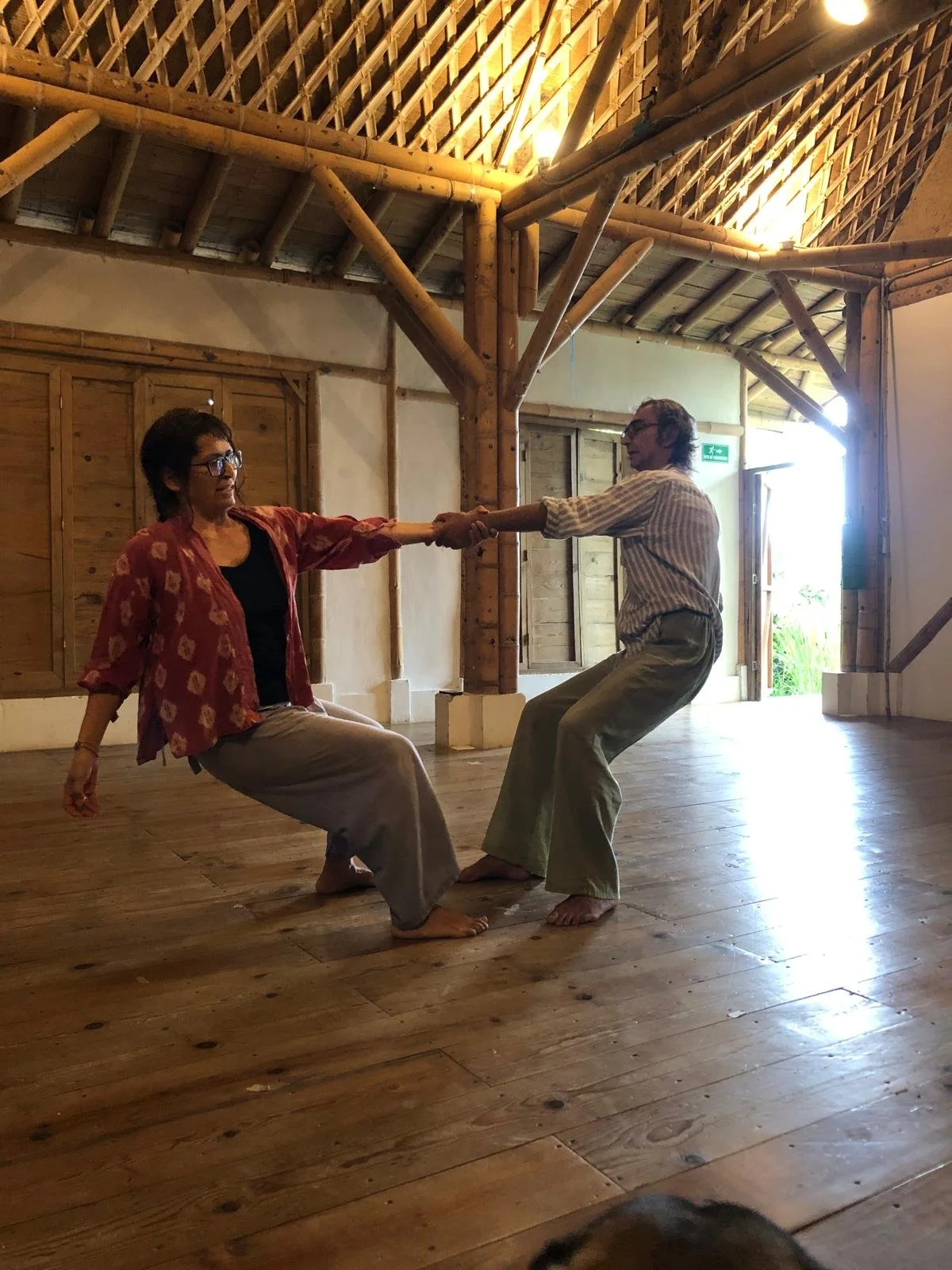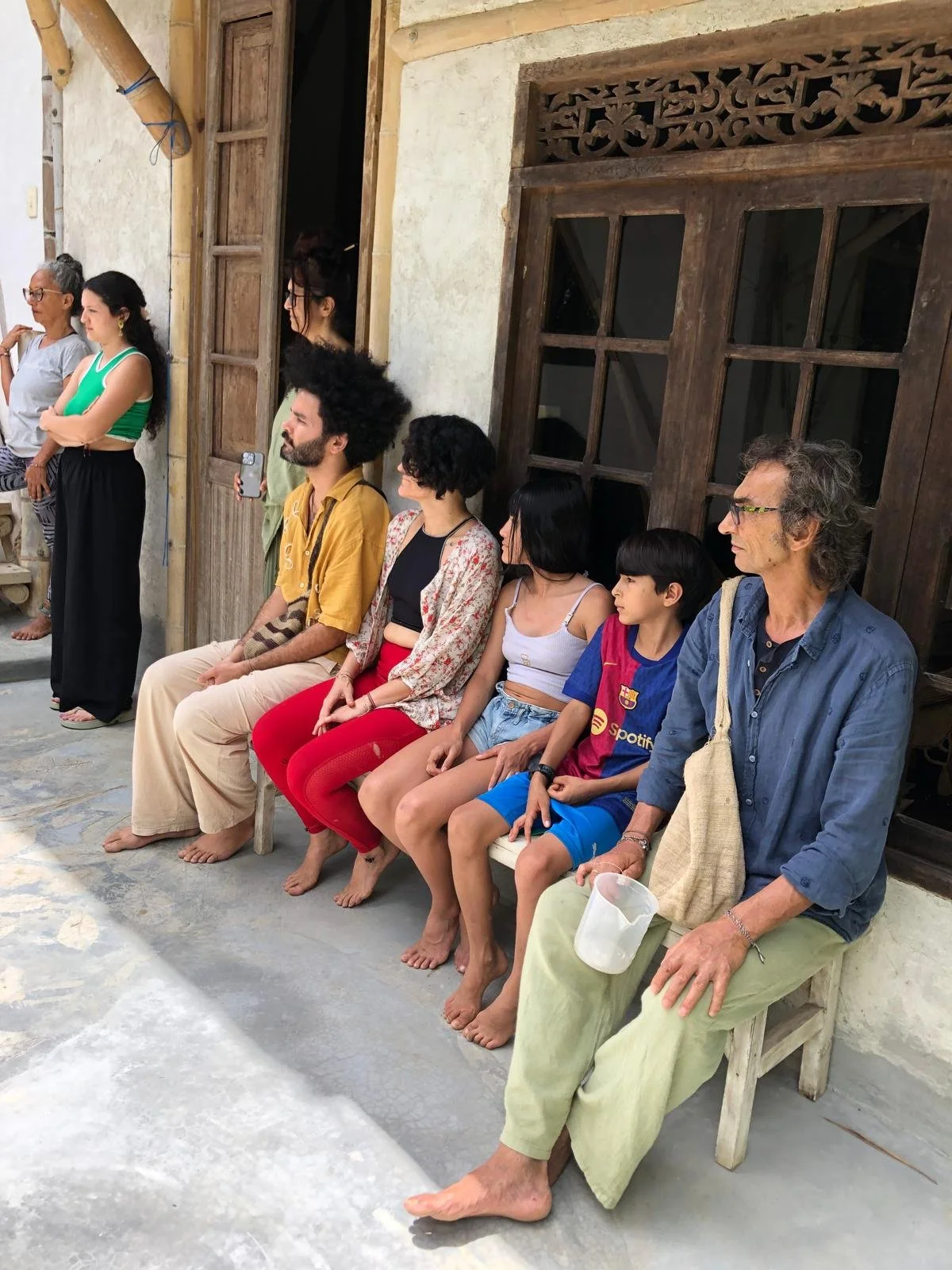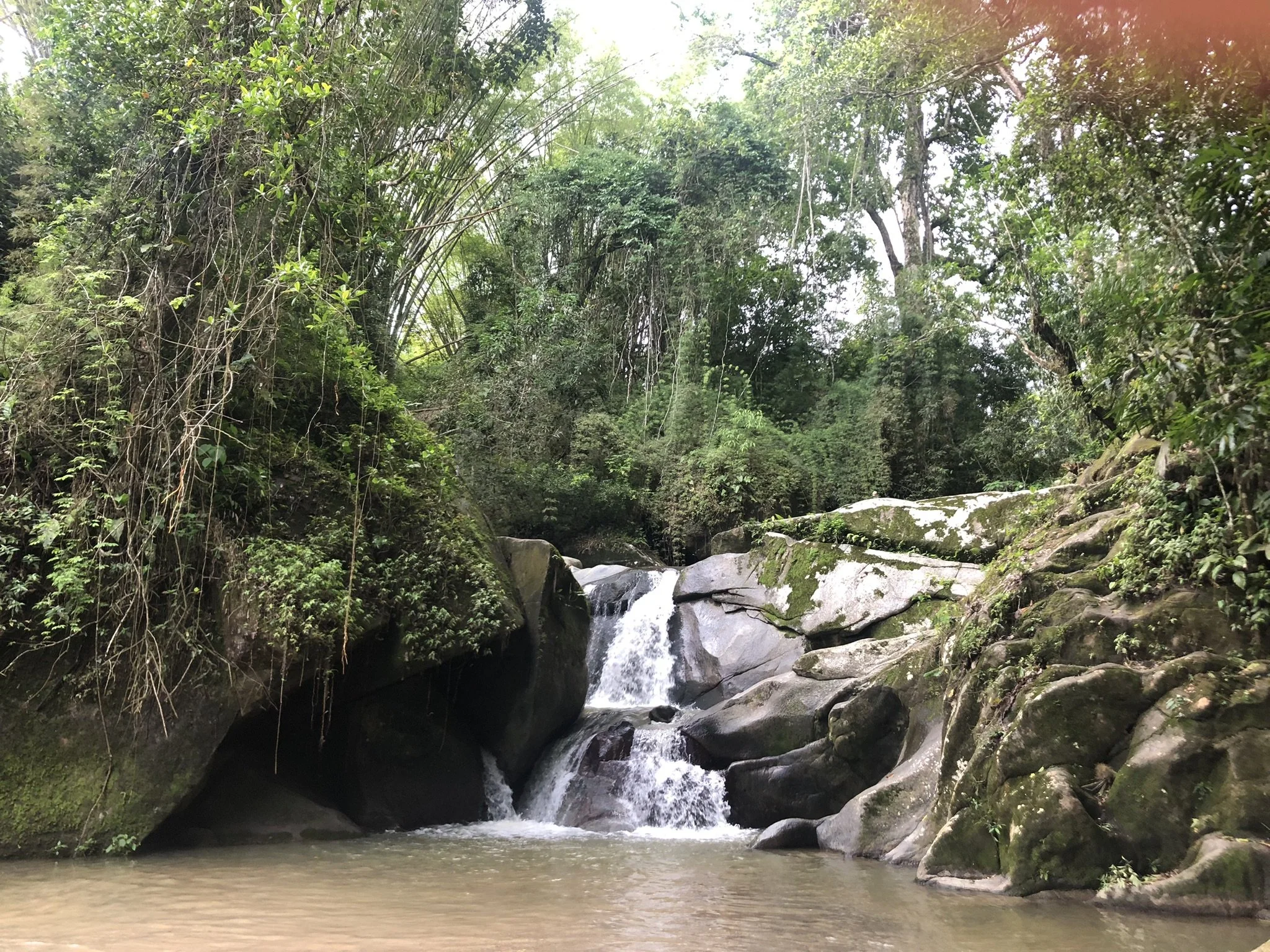Teatro Como Puente: Bridging Communities Through Theatre with Nube Sandoval & Bernardo Rey
While travelling in Colombia, I discovered Teatro Cénit and the powerful method of Teatro como Puente developed by Nube Sandoval and Bernardo Rey. This blog reflects on my three-day training with them, exploring how theatre can build bridges between people, foster authenticity, and inspire social change.
Discovering Minca: A Mountain Village of Creativity
Perched high in Colombia’s Sierra Nevada de Santa Marta, the village of Minca feels like a place suspended between worlds — snow-capped peaks above, dense jungle below, waterfalls threading through an ecosystem alive with animals, insects and birdlife. Over the past decade, it has become a haven for travellers, artists, and creatives seeking connection with nature, community, and new ideas.
Teatro Cénit: Theatre with a Purpose
It was here that I discovered Teatro Cénit, the theatre research centre founded by Colombian directors Nube Sandoval and Bernardo Rey. Known for their award-winning, socially engaged productions, they have spent the last 25 years developing Teatro como Puente — Theatre as a Bridge. This method has been used to create theatre in communities across Colombia, Ecuador, the United States, France, Italy, Switzerland, and Kenya, often in areas of risk or with vulnerable populations.
Theatre as a Bridge
Teatro como Puente offers a framework for devising community theatre that raises awareness of pressing issues — from the displacement of people and the impact of armed conflict, to the celebration of cultural heritage. At its core, it works with non-actors, people with little or no theatre experience, sometimes even without a common language. Through a structured, participatory process, the method draws out the essential skills to convey stories that resonate deeply with audiences.
Learning from the Masters: My Three-Day CPD Experience
I had the privilege of joining Nube and Bernardo for their three-day Teatro como Puente course — an introduction to their carefully honed approach. As a creative arts practitioner passionate about the arts as a catalyst for wellbeing and social change, I was struck by how seamlessly their method transforms creative expression into a bridge for empathy, understanding, and shared humanity.
UBUNTU and the Philosophy of Collective Presence
The philosophy underpinning the training draws inspiration from the concept of UBUNTU, originating in Southern Africa, which translates to “I am because we are.” This idea resonates deeply with the notion that individuals flourish through being part of a wider community — a support network that nurtures personal growth, while individual self-actualisation in turn strengthens the collective. Teatro como Puente embodies this principle: as actors, we are responsible members of a larger organism, requiring presence, awareness, availability and a commitment to the group, the story and the message being transmitted.
Authenticity and “Theatre Without Theatrics”
A core tenet emphasized repeatedly was authenticity. Nube and Bernardo stressed that for a message to resonate with an audience, actions must be genuine. Without authenticity, theatre risks becoming mere theatrics. Bernardo’s guidance was simple yet profound: “theatre without theatrics.” Emotions should be transmitted through concrete actions and reactions, rather than exaggerated gestures; subtlety and concreteness are what allow an audience to truly connect. In their words, the actor is simply “a human being doing an action.”
Devising Material: Movement, Props, and Creative Dialogue
We explored methods for devising material through movement exercises, using props and physical interactions to create tension, dialogue, and narrative. These exercises honed our responsiveness, availability, and the ability to generate ideas organically through embodied exploration, which could then be used as the seeds of inspiration when devising. I found these exercises especially inspirational as non verbal explorations are accessible to and could translate well across any demographic.
Personal Expression as Collective Experience
The course culminated in a deeply personal yet collective exercise: each participant created and performed a short piece of theatre reflecting a subject meaningful to them. We were encouraged to incorporate sound, song, objects of significance, personal narratives, and use of space — each choosing an area within the theatre, the house or the surrounding forest that resonated with us. As each piece was performed in sequence, they collectively formed a ‘Totem’ of personal expression, embodying the principles of Teatro como Puente: individuality, presence, authenticity, and connection to the collective, to community.
Reflections on Quality, Presence, and Social Impact
A key reflection for me was the importance of quality — of movement, expression, and presence. In my work with non-actors, the emphasis is often on participation, in which we celebrate vulnerability, and the courage to try new things rather than on the polished outcome. Yet working with Nube and Bernardo reminded me that quality is essential for the message to be received with the weight it deserves. Authenticity and craft are intertwined: they allow theatre to bridge not only those expressing themselves but also those witnessing, transforming personal experience into social dialogue. When executed with care, theatre can provoke conversation, inspire introspection, raise awareness, and act as a powerful catalyst for change.
Parallels with My Own Practice
Reflecting on this experience, I see clear parallels with my own practice. Like Teatro como Puente, my work seeks to create spaces where people can safely express, explore, and connect. But the course deepened my understanding of how carefully structured methods, rooted in presence, authenticity, collective responsibility, and quality, amplify the impact of creative expression.
Celebrating the Transformative Power of Theatre
Nube and Bernardo’s teaching is a testament to the transformative power of theatre. Their work reminds us that the arts are not merely a tool for personal reflection — they are bridges that can carry ideas, empathy, and understanding across communities and cultures. Witnessing their philosophy in action was a vivid reminder that, when rooted in care, authenticity, and skill, theatre has the power to change lives, strengthen communities, and imagine a brighter, more connected future.
If you are interested in taking a closer look at the fabulous work of Teatro Cenit check out their webpage www.teatrocenit.org. My sincerest thanks go to Nube and Bernie for their inspirational work.
Written by Lois Houghton 08/2025

